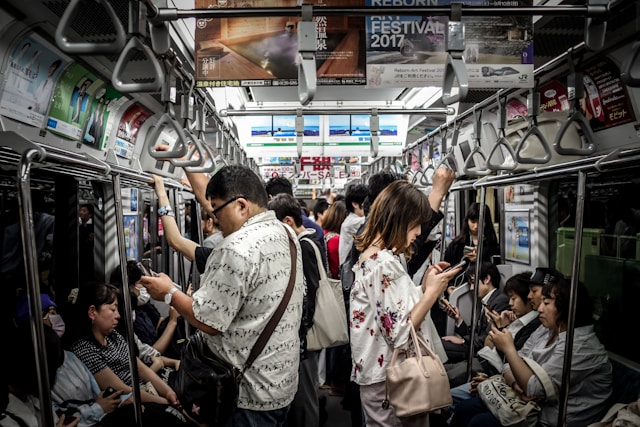When Life Was Wired (and We Were Happier)
Looking back, I was probably among the last software engineers to buy a laptop. I stayed loyal to my desktop PC for a very long time. Before turning 23, I had a PC and a phone that could only call or text people. The phone barely had a camera. I often feel I was far more productive back then. When I talk about it with others, they say it’s because I was younger and had more energy.
That might be true, but I believe there was also a connection between simplicity and productivity. I think we had a much better life when electronic devices were wired. There was a LAN cable — an RJ45 — that connected the home’s PC to the internet. Anyone who wanted to go online had to enter a separate room, sit behind a specific desk, and use that one computer.
Back then, everything had its place. Nowadays, everything is mobile. You can use your computer while sitting at the dining table, in a coffee shop, or on a train. You can access YouTube directly from your TV and spend endless hours watching videos designed to keep you watching. Instead of visiting a bookstore, you can buy any book with just a few clicks. Instead of going to the cinema with friends or loved ones, movies and shows are only a few buttons away — I’ve even seen people watching entire series while exercising at the gym. Instead of spending time with friends and family, everyone is on their phone, even when they’re sitting next to each other.
Some might argue that these are actually good things — that life has become easier and more convenient. And yes, that’s true. But while technology has made our lives easier, it has also made us less human.
You can already see how robotic we’ve become. Walk through any city centre around 6 p.m., when people are heading home from work. It doesn’t matter which city you’re in — many people wear noise-cancelling headphones, eyes glued to their phones. They barely speak to anyone. They prefer to stay in their own little worlds.
The side effects of such behaviour are now surfacing. In his book The Anxious Generation, Jonathan Haidt shows how social media has had a devastating effect on young people, especially teenagers. According to studies cited in the book, phone-based childhoods have led to significantly higher suicide rates. Among girls, the rate has increased by 167%, and among boys by 91% between 2010 and 2021.
The main reasons, as Haidt explains, are:
- Rise of smartphones and social media
- Decline in real-world social interaction
- Overprotection in the physical world, underprotection online
- Sleep issues and constant stimulation
To break this dangerous cycle, many scientists and productivity advocates suggest practical ways to control our device use.
For example, one idea is to plug your phone into its charger as soon as you get home — in a specific place, ideally far from where you usually sit with your family. That way, when you need to check something or answer a call, you have to walk there and back. As a result, you won’t have your phone with you at the dinner table or during family time.
Another useful approach is to remove social media apps from your phone and check them only on your computer. Ideally, we should return to the time when we met people in person and socialised face to face.
Conclusion and Some Recommendations
Of course, we can’t return to those earlier times, but we can adjust our lives to take advantage of both the wired and wireless worlds. Here are a few recommendations:
Use your phone only for:
- Calls
- Texts (such as WhatsApp or Telegram)
- Two-factor authentication and mobile banking
- Taking photos and notes
Avoid using your phone for:
- Social media of any kind (including WhatsApp or Telegram channels you follow)
Practical tips:
- Set a timer to limit phone use to one hour a day (excluding calls).
- Go to a cinema instead of watching Netflix or other streaming services.
- Try not to listen to music while commuting — listen to the sounds of life instead.
- Listen to music when you actually want to listen to music.
- Don’t combine things. When focusing on a task, focus only on that — even if it means turning off the music.
- Connect with people physically whenever possible, not just virtually.

 Photo by
Photo by